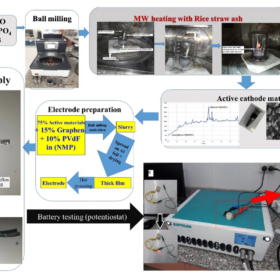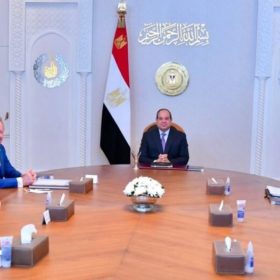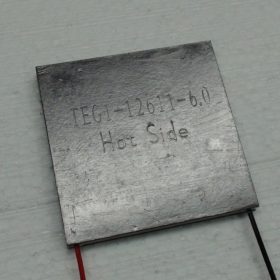Ultra-fast synthesis of nanocomposites for sodium ion batteries, supercapacitors
Researchers in Egypt have developed a synthesis method that uses the high microwave absorbance of silicon carbide content in rice straw ash and takes just 60 seconds to produce sodium iron phosphates-carbon nanocomposites (NaFePO4-C), which can be used as sodium ion battery cathodes and as symmetric supercapacitors.
Fortescue proposes 9.2 GW green hydrogen project in Egypt
Mining magnate Andrew Forrest’s Fortescue Future Industries continues its campaign to be one of the world’s largest clean energy companies, announcing plans to develop a 9.2 GW wind and solar facility in Egypt that will power green hydrogen production in the Arab republic.
Coupling photovoltaics with thermoelectric cooling
An international research team has investigated how solar could be combined with thermoelectric coolers (TECs), which are small solid-state heat pumps used either for heating or for cooling. A system was built with six solar panels, an air duct system, four batteries, a charge controller, TECs, an inverter, heat sinks, a test chamber, and condenser fans.
Passive solar module cooling based on hydrogels beads and nanofluids
A British-Egyptian research group has tested the use of hydrogels beads for PV module cooling. The micro-sized particles were saturated with aluminium oxide (Al2O3) water-based nanofluids and placed below the simulated PV panels. The experiment showed, according to the scientists, that the hydrogels beads were able to significantly reduce the temperature by between 17.9 and 16.3 degrees Celsius.
UPDATE: ACWA offered lowest bid in Egypt’s 200 MW tender
As pv magazine has learnt, the Saudi energy giant lowered its offer to $0.02752/kWh at the last minute, beating the bid lodged by Spain’s Fotowatio, which offered $0.02791 per kWh.
Egypt receives two bids under $0.03/kWh in 200 MW solar tender
The lowest bid was submitted by Spanish developer Fotowatio, which offered US$0.02791 per kWh. Slightly higher, at $0.02799 per kWh, was the offer of Saudi power company, ACWA.











